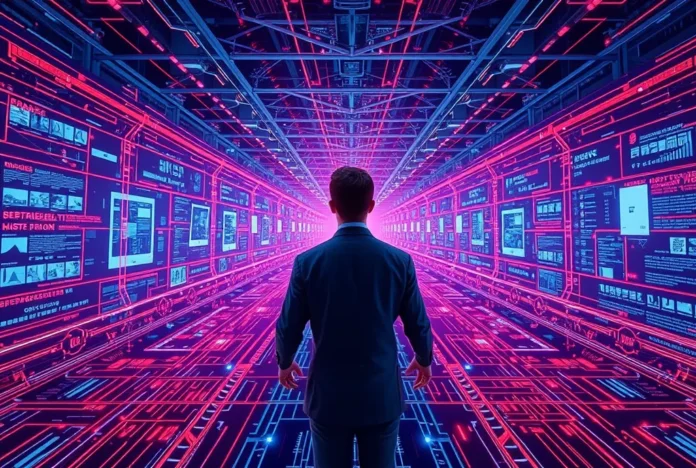Artificial Intelligence (AI) has already changed industries such as healthcare and entertainment. But its development is accelerating. Over the next five years, AI will become more specialized, better integrated, and more ethical. These changes will unlock new possibilities but also bring challenges. Let’s explore what we can expect by the end of the decade.
1. Greater Specialization and Customization
One of the biggest changes will be the shift from general-purpose AI to specialized models. Today’s large language models are useful across industries, but future AI will focus more on specific sectors. For example, healthcare AI will excel at diagnostics and personalized treatments. In finance, AI will become more skilled at fraud detection and risk management. This specialization will improve efficiency and accuracy in tasks that require detailed knowledge.
2. AI-Augmented Workforce
AI will also change the way we work. Over the next five years, more companies will use AI to handle routine tasks. This shift will allow humans to focus on creative problem-solving. For example, AI assistants will manage data analysis, scheduling, and customer service. This will free up time for employees to work on higher-level tasks. Gartner predicts that by 2026, AI will write more software code than human developers. This transformation will lead to new roles, while routine coding tasks become automated.
3. Ethical and Responsible AI Development
As AI becomes more common, we must ensure it is used responsibly. This includes addressing bias, privacy, and fairness. Governments and companies will create rules to make AI systems more transparent and accountable. These rules will help prevent biased decision-making in areas like hiring or healthcare. Many organizations will set up AI ethics boards to guide the development and use of their systems. Efforts to remove bias from AI will also increase, with better data checks and monitoring.
4. AI and Edge Computing
AI will increasingly rely on edge computing. Currently, most AI data is processed in large, central servers. However, as more devices connect to the internet, AI will need to process data closer to where it’s collected. Edge AI, which handles data locally, will reduce delays and improve privacy. For example, platforms like FluxEdge will allow faster AI processing without needing constant cloud connections. This will make AI more responsive in real-time applications.
5. Autonomous Systems and Robotics
AI will also advance in robotics and autonomous systems. Currently, robots are used in factories and warehouses for basic tasks. Over the next five years, they will handle more complex environments. Autonomous vehicles, drones, and logistics systems will become common. These systems will help optimize supply chains and improve efficiency. As AI improves, robots will work more safely and effectively alongside humans.
6. Generative AI Breakthroughs
Generative AI, which creates text, images, and videos, will continue to improve. AI models like FluxAI, powered by technologies like Llama 3, will revolutionize creative fields. These models will generate content for marketing, education, and entertainment faster than ever before. For example, companies will use generative AI to create product designs, marketing materials, and virtual simulations. These advancements will make creative processes quicker and more cost-effective.
7. AI Governance and Regulation
As AI becomes more powerful, the need for regulation will grow. Governments will develop frameworks to ensure that AI is used ethically. This includes protecting against deepfakes, misuse in surveillance, and autonomous weapons. International cooperation will be necessary to create global standards for AI. Regulations will hold companies accountable for the data they use to train their AI systems. These measures will help ensure that AI benefits society without causing harm.
Rounding Up
In the next five years, AI will become more specialized, responsible, and powerful. It will transform industries by automating routine tasks and enabling faster creative production. However, along with these benefits comes the need for stricter regulations and ethical development. To succeed in this AI-driven future, businesses and individuals must stay informed and ready to adapt to the changes ahead.
Sources:
- Gartner’s prediction on AI writing most code by 2026: Gartner.com
- “AI in Healthcare: The Future” – Forbes, forbes.com
- “Responsible AI Development” – World Economic Forum, weforum.org
- “Edge Computing and AI” – TechCrunch, techcrunch.com
- “Generative AI Breakthroughs” – TechRadar, techradar.com



